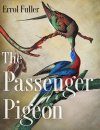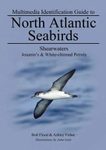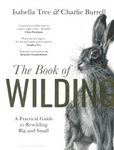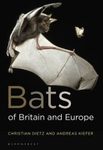By: Joel Greenberg(Author)
306 pages, 16 plates with colour & b/w photos and colour illustrations
The epic story of why passenger pigeons became extinct and what that says about our current relationship with the natural world
![A Feathered River Across the Sky A Feathered River Across the Sky]()
Click to have a closer look
About this book
Contents
Customer reviews
Related titles
Recommended titles
About this book
In the early nineteenth century 25 to 40 percent of North America's birds were passenger pigeons, traveling in flocks so massive as to block out the sun for hours or even days. The down beats of their wings would chill the air beneath and create a thundering roar that would drown out all other sound. Feeding flocks would appear as "a blue wave four or five feet high rolling toward you."
John James Audubon, impressed by their speed and agility, said a lone passenger pigeon streaking through the forest "passes like a thought." How prophetic – for although a billion pigeons streamed over Toronto in May of 1860, little more than fifty years later passenger pigeons were extinct. The last of the species, Martha, died in captivity at the Cincinnati Zoo on September 1, 1914.
As naturalist Joel Greenberg relates in gripping detail, the pigeons' propensity to nest, roost, and fly together in vast numbers made them vulnerable to unremitting market and recreational hunting. The spread of railroads and telegraph lines created national markets that allowed the birds to be pursued relentlessly. Passenger pigeons inspired awe in the likes of Audubon, Henry David Thoreau, James Fenimore Cooper, and others, but no serious effort was made to protect the species until it was way too late. Greenberg's beautifully written story of the passenger pigeon provides a cautionary tale of what happens when species and natural resources are not harvested sustainably.
Contents
Preface xi
1. Life of the Wanderer 1
2. My Blood Shall Be Your Blood: Indians and Passenger Pigeons 31
3. A Legacy of Awe 46
4. Pigeons as Provisions to Pigeons as Products 68
5. Means of Destruction 91
6. Profiles in Killing 109
7. The Tempest Was Spent: The Last Great Nestings 129
8. Flights to the Finish 156
9. Martha and Her Kin: The Captive Flocks 178
10. Extinction and Beyond 190
Appendix: A Passenger Pigeon Miscellany 209
Acknowledgments 243
Notes 245
Bibliography 261
Index 275
Customer Reviews
By: Joel Greenberg(Author)
306 pages, 16 plates with colour & b/w photos and colour illustrations
The epic story of why passenger pigeons became extinct and what that says about our current relationship with the natural world
"There are a hundred ways to kill a species, and each extinction is both a tragedy and a drama deserving of its own story. This thoroughly researched and well written account of the passenger pigeon is a definitive example of its genre."
– Edward O. Wilson, University Research Professor, Emeritus, Harvard University
"A Feathered River Across the Sky is a parable of our time. The numbers and biomass of passenger pigeons exceeded the great Pacific salmon runs, and the awesome image of birds evokes wonder, humility, and outrage at human insensitivity and short sightedness. What a heartbreaking indictment of our species that we treated these animals so thoughtlessly."
– David Suzuki, author of The Sacred Balance
"An epic of life and death on a scale of billions [...] The world has never seen anything like the abundance and crash of the passenger pigeon. This astonishing book glows with life, not just as history but as a vivid and urgent story for today and tomorrow. Joel Greenberg is one of our finest nature writers, and his masterful command of this extraordinary topic makes this a must-read book for the ages."
– Kenn Kaufman, author of Kingbird Highway
"Greenberg pulls together a wealth of material from myriad sources to describe the life and death of this species [...] [A] story that is both ennobling and fascinating."
– Publishers Weekly
"The first major work in sixty years about the most famous extinct species since the dodo [...] equal parts natural history, elegy, and environmental outcry [...] A painstaking researcher, Greenberg writes with a naturalist's curiosity about the birds [...] Answering even basic questions about the passenger pigeon requires a sort of forensic ornithology, which gives A Feathered River Across the Sky an unexpected poignancy at the very points where it is most nature-nerdy."
– New Yorker
"Joel Greenberg has done prodigious research into the literature of the passenger pigeon and lays much of it out in this book. For that effort, all who care about the living world owe him a debt of gratitude."
– Wall Street Journal
"A brilliant, important, haunting and poignant book, A Feathered River Across the Sky [...] will forever change the way in which you think of pigeons (all birds, really) and about the natural world. The book describes, in vivid detail, forceful narrative and handsome illustrations, the history of this species and the factors that contributed to its extinction."
– Chicago Tribune








































